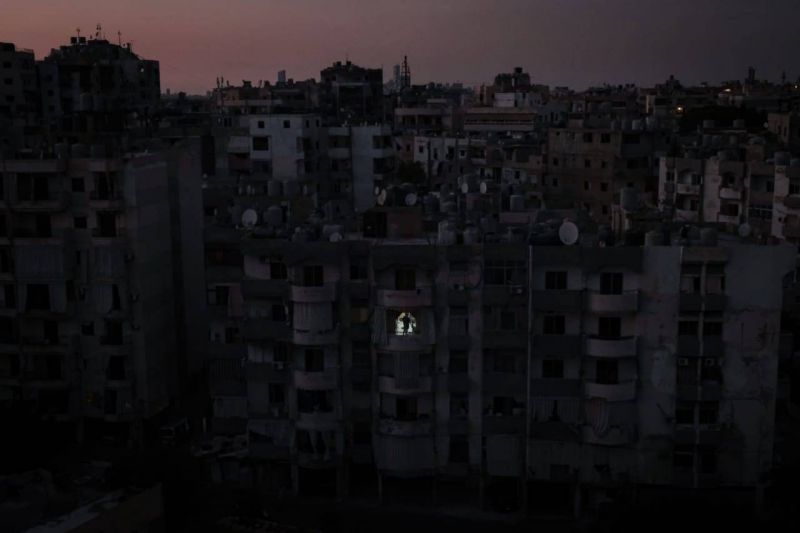
A Beirut neighborhood stands in darkness during extensive power cuts and severe fuel shortages that take many generators offline for hours at a time. (Credit: João Sousa/L’Orient Today)
The Lebanese government has agreed to pay out long-delayed World Bank cash assistance in US dollars, resolving a major obstacle to the program’s implementation. A $246 million World Bank-funded aid program was approved by the World Bank’s board in January and by Parliament in March, but it has been delayed for months because of Lebanese bureaucratic malfunction. The World Bank has insisted on paying recipients in dollars to ensure that they receive the full value of the aid, whereas the Lebanese government has wavered in committing to that agreement, saying instead it would pay the amount out in lira at various exchange rates. However, before the money can be disbursed to some 147,000 of Lebanon’s poorest families, the government still needs to verify the beneficiaries and hire a third-party monitoring agency.
Unions are stepping up pressure on the government to rectify employees’ low wages and the dearth of benefits they receive or else risk paralysis in even more sectors of the country. The head of the General Confederation of Lebanese Workers, Bechara al-Asmar, called for a weeklong strike starting today to step up pressure for an increase to the minimum wage and a recalculation of wages on the basis of the parallel market exchange rate. Meanwhile, the president of the Federation of Land Transport Unions gave caretaker Prime Minister Hassan Diab a week to make good on his promises to public transportation drivers, or fares could rise as high as LL25,000. Last month Diab promised to include public transport drivers among the recipients of the long-awaited ration card and to give each of them a LL500,000-a-month stipend for vehicle maintenance and special pricing for fuel. The unions’ president, Bassam Tleiss, pledged that his drivers would not block the roads, but warned that “the country, its institutions and factories will close because the wages of employees will not be enough to pay for transport.”
Public schools will resume classes on Sept. 27, while private schools will return sometime between late September and early October. In a news conference yesterday, caretaker Education Minister Tarek Majzoub said public schools would hold in-person classes at least four days a week, with the fifth day possibly reserved for distance learning. In-person classes have not been held for much of the past two years in light of, first, the October 2019 uprising and, later, the ongoing coronavirus pandemic. More than 1.2 million school-age children in Lebanon had their education disrupted in 2020 alone. Access to education has become only more complicated due to the financial crisis and power outages and internet cuts stemming from diesel shortages. The fuel crisis, which has made commuting both more difficult and more expensive, is also complicating the return to in-person instruction for many Lebanese students and their families.
Following the Energy Ministry’s fuel prices increase announcement on Sunday, the Economy Ministry yesterday hiked bread prices. At bakeries, a large 950-gram bread bundle will now cost LL4,500, while a small 380-gram bundle will cost LL2,750. The new bread prices represent a 12.5 and 7.23 percent price increase respectively. Prices at supermarkets are LL500 higher per bundle. The increase comes as many bakeries across the country struggle to maintain operations and production levels amid extensive state-provided electricity outages and severe shortages of diesel to run power-providing generators.
Najib Mikati will return to Baabda today for yet another round of government formation negotiations. Thursday will mark one month since the prime minister-designate was tasked with forming a government. Yet, the prime minister-designate and President Michel Aoun have thus far been unable to agree on a cabinet lineup after reportedly being unsuccessful in settling a contentious debate over who will head up certain ministries. Lebanon has been without a government for 379 days, the longest period in its history as an independent state.